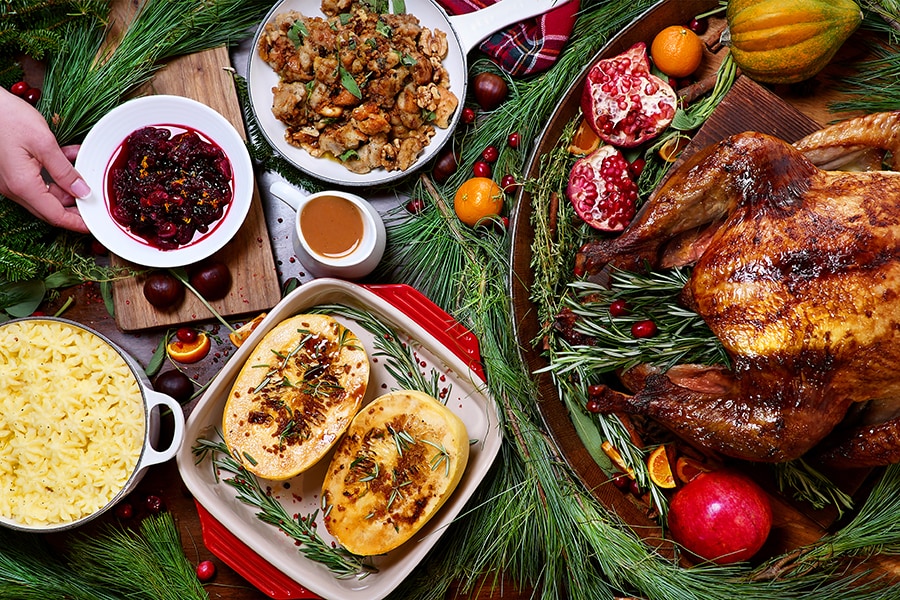
Three ways to minimise the effects of festive overindulgence
It is possible to replace certain foods and ingredients to make the meal healthier and the aftermath less uncomfortable. Here's how
 Putting vegetables on the menu this Christmas can help you keep festive overindulgence in check.
Image: Shutterstock
Putting vegetables on the menu this Christmas can help you keep festive overindulgence in check.
Image: Shutterstock
Holiday meals are often synonymous with excesses of all kinds, including sugar, salt, fat and alcohol. While there's no question of depriving yourself during the festive season, with dishes that are sometimes only eaten at this time of year, it is possible to replace certain foods and ingredients to make the meal healthier, and the aftermath less uncomfortable.
From food poisoning to indigestion, hangovers or upset stomachs, festive meals are often eagerly awaited and much appreciated, but their after-effects can be difficult. This is undoubtedly linked to the many excesses involved in these festive occasions, which can be lengthy affairs, often involving a profusion of foods and alcohols as rich as they are varied. And racking up a series of these gargantuan meals—on December 24 and 25, December 31 and January 1 at least—generally only makes things worse. However, taking action before, during and after these moments of festive indulgence can help ease the blow.
The importance of water
Of course, you can't force water on every guest at the Christmas table, but this mealtime basic is a must. It's important to stay hydrated to avoid certain discomforts when you wake up the next morning, and—contrary to what you might think—we're not just talking about hangovers. Water not only aids digestion, which is important for this kind of event, but also promotes the absorption of nutrients, reduces the risk of dehydration and controls appetite. We tend to forget it, but water helps curb hunger, so you eat less at mealtimes. In addition, water should replace a glass of alcohol here and there throughout the day/evening.
The best thing to do is drink plenty of water before the big meal, alternate alcohol and water as necessary during the meal, and then drink plenty again afterward. And while champagne and other festive fizzes are Christmas staples, non-alcoholic cocktails and wines are becoming increasingly popular, again saving you all kinds of woes. If you do opt for alcohol, it's advisable to stick to wine and fizz, whatever the kind, rather than alcoholic cocktails, which are usually sweeter.
Also read: Appetite, food and hunger: Is there more to Veeba's secret sauce?
Snack on crudités
For some people, vegetables in any form have no place in the holiday festivities. But they can make indulgent meals much healthier and lighter. Why not offer them as before-dinner snacks, when stomachs are grumbling and guests tend to nibble away endlessly? As a host, it's perfectly possible to limit the amount of food available to snack on before a big meal in order to avoid excess. Still, vegetables allow you not to deprive yourself or your guests, and can quash hunger pangs with no regrets.







